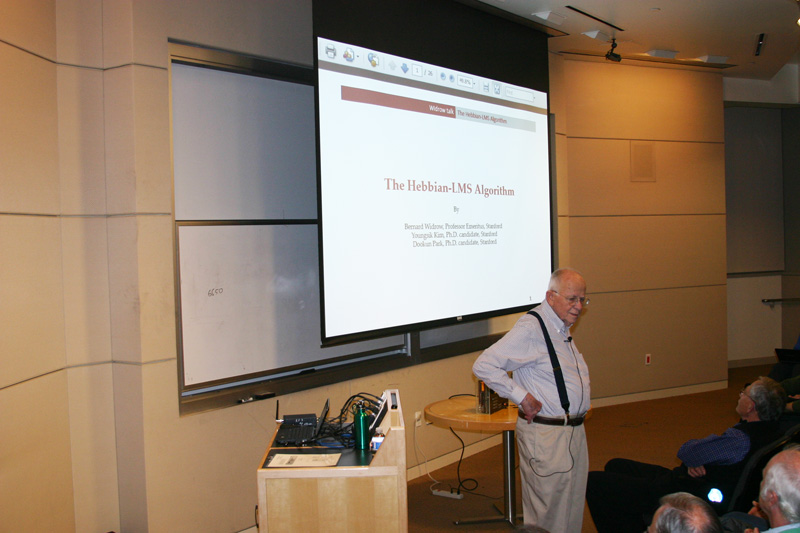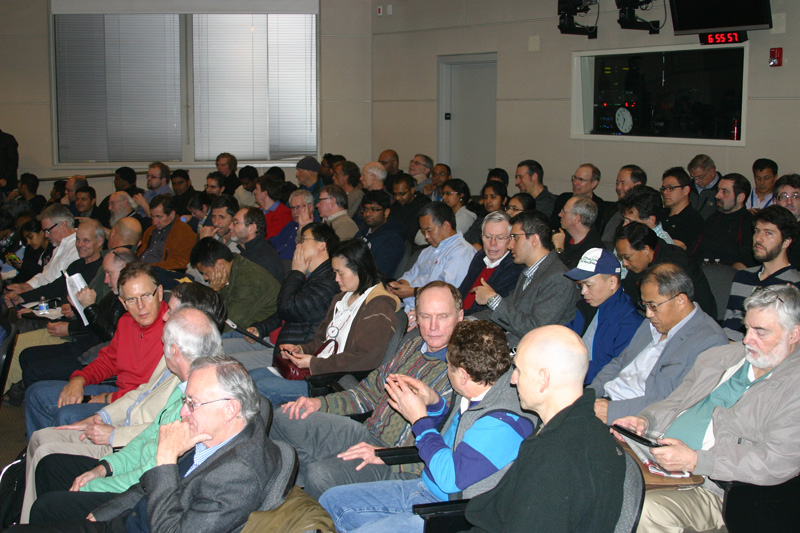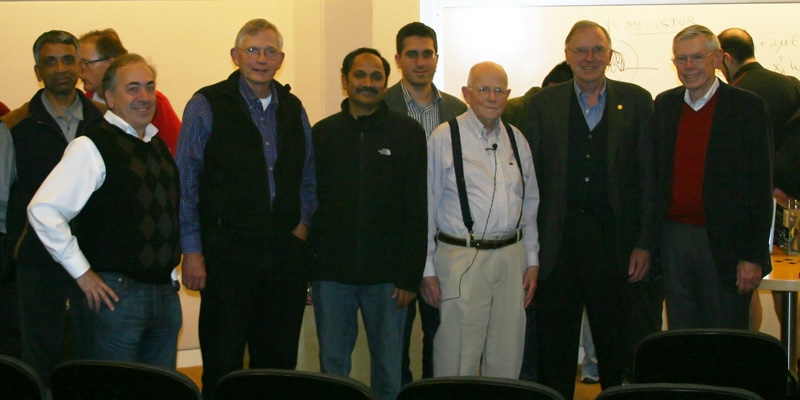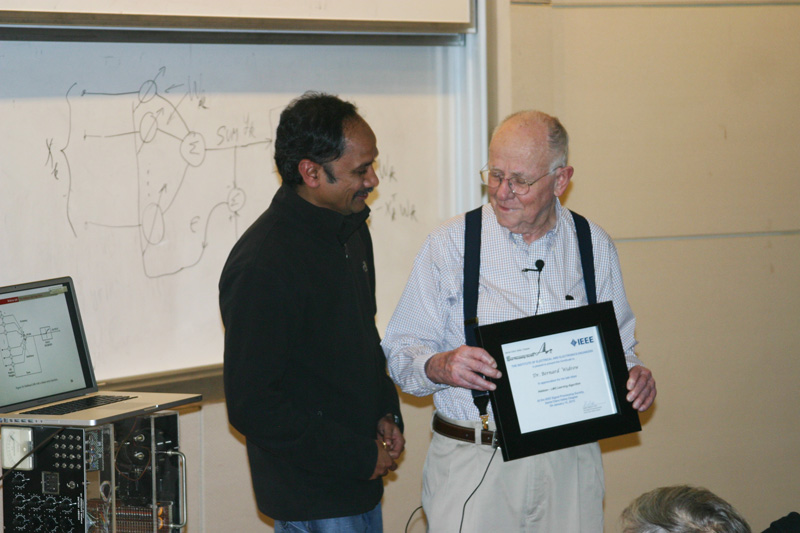|
|
Click here for see the full list of upcoming events.
Thursday, January 15, 2015
Hebbian-LMS Learning Algorithm
This meeting is hosted/sponsored by IEEE SPS Chapter and co-sponsored by IEEE CIS, CS, CSS, IT, & RAS Chapters.
Speaker :
Dr. Bernard Widrow
Professor of Electrical Engineering, Emeritus
Stanford University
Location:
David Packard Electrical Engineering, Room 101, Stanford University
350 Serra Mall, Stanford, CA 94305 (map or Google Maps)
Parking is available on the Quad, Lomita Drive (the street in front of the Cantor Museum) and
in the Parking Structures on Panama St and Roth Way.
Schedule:
6:30pm: Networking
6:55pm: Announcements
7:00pm: Presentation
8:45pm: Adjourn
Cost:
Free
Abstract:
Hebbian learning is widely accepted in the fields of psychology, neurology, and neurobiology. It is one of the fundamental premises of neuroscience. The LMS (least mean square) algorithm of Widrow and Hoff is the world's most widely used adaptive algorithm, fundamental in the fields of signal processing, control systems, pattern recognition, and artificial neural networks. These are very different learning paradigms. Hebbian learning is unsupervised. LMS learning is supervised. However, a form of LMS can be constructed to perform unsupervised learning and, as such, LMS can be used in a natural way to implement Hebbian learning. Combining the two paradigms creates a new unsupervised learning algorithm that has practical engineering applications and may provide insight into learning in living neural networks.
Biography:
Bernard Widrow received the S.B., S.M., and Sc.D. degrees in Electrical Engineering from the Massachusetts Institute of Technology in 1951, 1953, and 1956, respectively. He joined the MIT faculty and taught there from 1956 to 1959. In 1959, he joined the faculty of Stanford University, where he is currently Professor of Electrical Engineering, Emeritus.
He began research on adaptive filters, learning processes, and artificial neural models in 1957. Together with M.E. Hoff, Jr., his first doctoral student at Stanford, he invented the LMS algorithm in the autumn of 1959. Today, this is the most widely used learning algorithm, used in every MODEM in the world. He has continued working on adaptive signal processing, adaptive controls, and neural networks since that time.
Dr. Widrow is a Life Fellow of the IEEE and a Fellow of AAAS. He received the IEEE Centennial Medal in 1984, the IEEE Alexander Graham Bell Medal in 1986, the IEEE Signal Processing Society Medal in 1986, the IEEE Neural Networks Pioneer Medal in 1991, the IEEE Millennium Medal in 2000, and the Benjamin Franklin Medal for Engineering from the Franklin Institute of Philadelphia in 2001. He was inducted into the National Academy of Engineering in 1995 and into the Silicon Valley Engineering Council Hall of Fame in 1999.
Dr. Widrow is a past president and member of the Governing Board of the International Neural Network Society. He is associate editor of several journals and is the author of over 125 technical papers and 21 patents. He is co-author of Adaptive Signal Processing and Adaptive Inverse Control, both Prentice-Hall books. A new book, Quantization Noise, was published by Cambridge University Press in June 2008.
Slides



* from-left: Ganesh Rajan, Alex Acero, Ronald Schafer, Radhakrishna Giduthuri, Bernard Widrow, Marcian "Ted" Hoff

Subscribe to future announcements: link
|